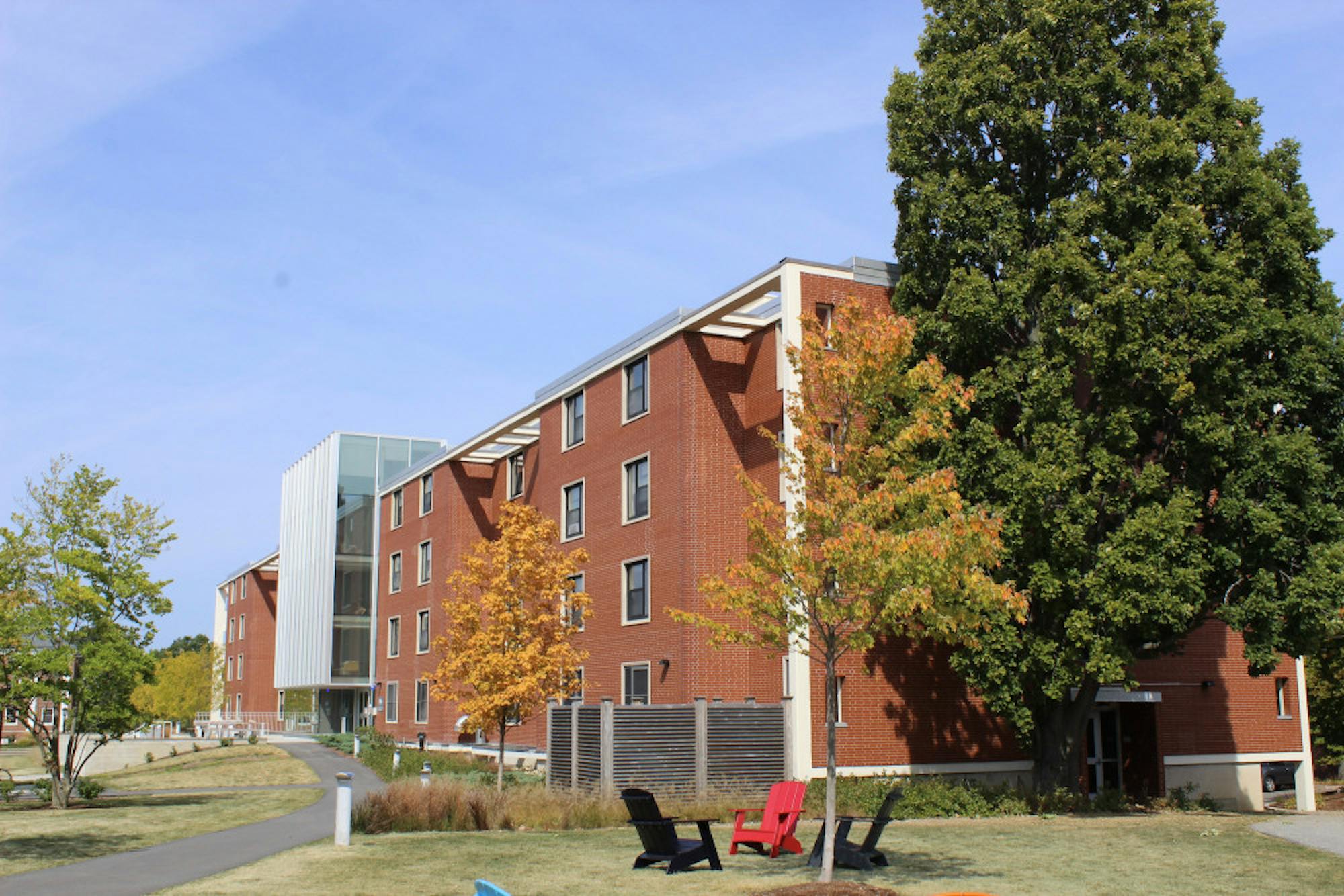Editor's note: The name of a source has been changed to protect their privacy. The source requested anonymity out of concern for their job security as a residential assistant.
Residential assistants (RA) claim they have seen a lack of guidance from the university regarding the implementation and enforcement of the residential cohort system. The Office of Residential Life and Learning (ORLL) maintains they provided RAs with a variety of resources in an effort to help them navigate the new system.
According to thefall 2020 guide released by theuniversity in June, residential cohorts are small groups of students, consisting of about six to 12 people each. Students in a cohort can relax social distancing measures while interacting with each other, but they must wear masks at all times, except when eating.
Tim Jordan, assistant director of residential education, explained that cohorts were assigned to all students as of Sept. 9.
“For many suite and apartment style communities, the suite or apartment made a natural cohort,” Jordan wrote in an email to the Daily. “For traditional style halls, cohorts were created based on the floor plans of the community and the limits of students per cohort.”
Jordan acknowledged that the establishment of the cohort system had slowed the finalization of student housing assignments. He noted that there have been no delays, however, in the formation of cohorts.
“Cohorts have been overall a positive endeavor, but have caused some delay in completing continuing student housing assignments due to the housing reselection and cohort formation process that occurred in late July and August,” Jordan said. "There has not been a delay in the assignment of cohorts."
Avery, an RA who requested anonymity out of concern for their job security, said there was confusion surrounding cohort assignments at the beginning of the semester among RAs.
“Ultimately, the reason that we found out what the cohorts were, are because of how the hall is designed, and we needed to figure out who would be an RA for which section,” Avery said.
Anna Ehrlich, an assistant residential life coordinator for Miller Hall and Houston Hall, offered possible reasons for the issues some have experienced with the new system.
“I think with a lot of moving pieces and instruments, also [students] deciding to move to different dorms, students deciding if they're going to be remote or come to campus ... that delayed some of the solidification,”Ehrlich, a student in the Graduate School of Arts and Sciences, said.
Jordan responded to the confusion RAs have experienced navigating the cohort system.
"With any new process I think there can be some initial confusion in getting everyone on the same page," he said. "ORLL sent communication to students regarding their specific cohort, held town halls regarding the cohort process, updated our FAQ page on the housing website, and also had individual outreach."
Avery believes that Tufts has shown a larger disregard for the residential cohort program.
“I honestly don't believe that the cohorts were the number one priority of the university when trying to figure out when people were coming back,” Avery said. “I'm sure that figuring out the cohorts were less of a priority than figuring out check-in, and figuring out quarantines.”
RAs believe the university inadvertently imposed on them the responsibility of policing students on cohort policy.
“The RAs are not supposed to be the police on this issue, it's just something that's fallen upon us due to the circumstances we have found ourselves in,” Avery said.
Jordan explained that the enforcement of residential cohorts is a shared responsibility.
"The students in the cohort should be conscious of who they are interacting with and only allow those within the cohort to relax physical distancing," he said. "Residential Life staff, including the RAs, will also enforce COVID-19 safety policies if two people from different cohorts are not maintaining physical distance to keep our community safe."
Avery reflected on the effectiveness of the cohort system, more broadly, and said it would be more efficient if the university found others to enforce it, and not RAs.
“The cohort system, as a whole, is something that seems very idealistic,” Avery said. “It seems like something that could work if they had people to enforce it, but there's nobody to force it really.”
Correction: A previous version of this article used the term "residential advisors," when the correct term is "residential assistants." The article has been updated to reflect this change. The Daily regrets this error.






